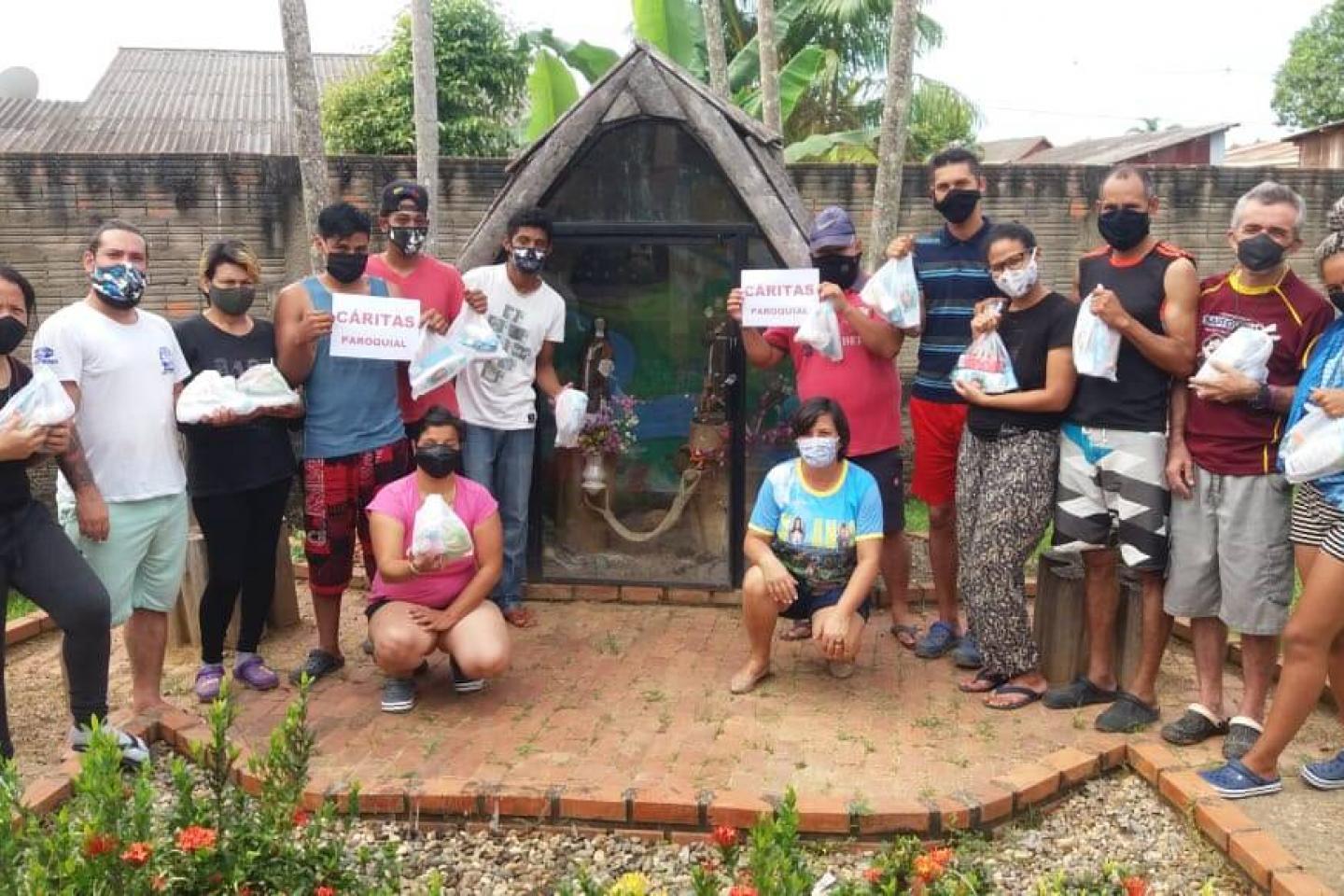PANA program benefits more than 300 Venezuelans and migrants in Brazil

OIM BrasilVer original
Brasília – Started during the COVID-19 pandemic, the new phase of the PANA program implemented by Caritas has already benefited 355 Venezuelans and migrants in four different locations in Brazil with safe housing, food, hygiene, cleaning, and personnel items, as well as support for socio-economic integration. In Acre, on the border with Peru, the project has provided food and accommodation to migrants, including Venezuelans, who were stranded because of the closure of the border due to the COVID-19 pandemic. The pandemic also led to adaptations in the project to welcome vulnerable family groups that suffered the economic and financial effects of the health crisis in the states of São Paulo, Rondônia, Santa Catarina, and the Federal District, where the project is implemented. In a first stage, the beneficiaries in these states were welcomed with temporary accommodation, with financial assistance for the purchase of food. Upon leaving the accommodation, if the family still has no sufficient income, subsistence grants are guaranteed for three months, ranging from USD 130 to USD 215, according to the number of members of the family group. “This assistance is essential for hundreds of people in each city where PANA is operating. Caritas Brazil and IOM Brazil had to adjust the project after the arrival of the pandemic, to provide support to those families directly or indirectly impacted by COVID-19”, highlights the project coordinator at IOM Brazil, Guilherme Otero. “Fortunately, we were able to alleviate the difficulties for many families, even with integration and work intermediation”, adds Otero. With the support of PANA, Venezuelan Rosa H., who currently lives in Brasilia with her husband and two children, received housing and financial assistance early in the pandemic. The couple produces handicrafts and with the measures of social isolation, the sales of their products were strongly impacted. “The benefit came at an opportune time when the pandemic started, and we were unable to work. The accommodation was a good place to live and there was harmony among all the beneficiaries”, says the artisan who now manages to rent her home on her own. In addition to welcoming, the project also provides support by a multidisciplinary team that works in the psychosocial and legal fields, helping and guidance to the group of Venezuelans, for example, for migratory and document regularization in Brazil. Supporting the economic insertion of the people served is also carried out, such as labor integration and guidance for writing resumes. With the support of the program, 19 refugees and migrants managed to return to the labor market. A three-week sewing course was also offered to women in São Paulo to strengthen potential talents and placing job seekers. Also, the “Houses of Rights” – welcoming spaces in the cities where PANA is present - provide remote assistance during the pandemic by monitoring all beneficiaries. Among the main activities in this period, one of them is monitoring to ensure access to emergency assistance, a financial support made available by the Brazilian Government, in the scope of the coronavirus. Faced with the new pandemic scenario, Wemmia Santos, a PANA social worker in DF, believes that the guidance and attention provided reinforced not only care and prevention but also ensured that migrants again recognized themselves as citizens. “The project, in addition to the support, guidance, and guarantee of assistance, provided the dimension of dignity to these people because once we guarantee rights, we have taken many steps towards the effective integration of migrants in our society”, she says. In addition to Temporary Accommodation and the Houses of Rights, PANA was also able to support 119 migrants of different nationalities, including Venezuelans, in Acre. They were in transit to Peru and were unable to continue their journey due to the closure of borders caused by the health crisis. “PANA's actions were a great help to migrant people who were unable to enter Peru due to the border closure because of the COVID-19 pandemic. With the resources made available, we were able to offer three meals a day for migrants who were in three different cities”, informs Aurinete Brasil, the volunteer and advisor of Caritas Diocesan of Rio Branco. Caritas Brazil, through its network in the state, started offering food to migrants on the border in July, especially in the city of Assis Brasil. The name of the Program, established between 2018-2019 and resumed in 2020, is inspired by the Venezuelan vocabulary: “PANA” is a popular word in Venezuela that means “friend”. It is with this sense of partnership that the program seeks to establish links between people who migrate and welcoming cities. PANA Brasil is an initiative by Caritas Brazil, carried out with the support of the International Organization for Migration (IOM) and funding from the Bureau of Population, Refugees and Migration (PRM), of the United States Department of State, which aims to accommodate Venezuelan refugees and migrants in Brazil, specifically, in five cities in the national territory: Brasília (DF), São José and Tubarão (SC), Porto Velho (RO) and São Paulo (SP).

